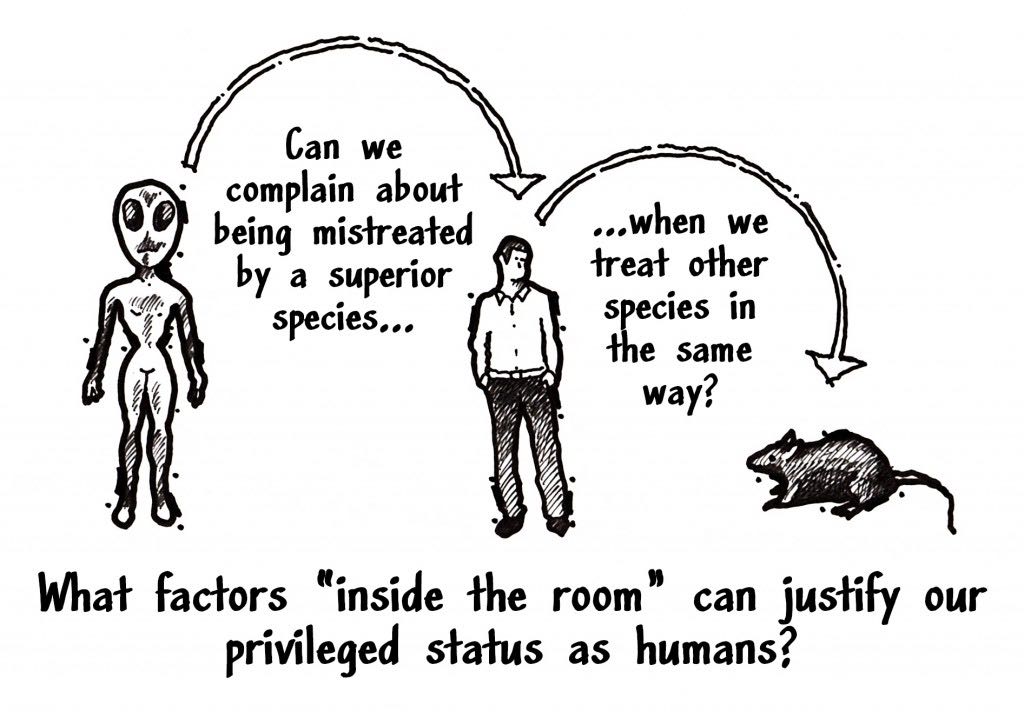In my e-book, God’s Crime Scene, I study eight items of proof within the universe by asking a easy investigative query: “Can I clarify the proof ‘within the room’ (of the pure universe) by staying ‘within the room’?” It is a query I ask at each loss of life scene to find out if I even have a crime scene. When proof within the room can’t be defined by staying within the room, I’ve received to think about the involvement of an intruder. If the proof contained in the universe can’t be defined by staying “inside” the pure realm of the universe, we should equally contemplate the involvement of a cosmic intruder. One essential piece of the proof within the universe is the existence of ethical obligations. Can we clarify these obligations by staying “contained in the room”? Can naturalism account for the human dignity and worth essential to floor ethical obligations?
Why will we, as people, really feel obligated towards different people once we don’t acknowledge ethical obligations towards different types of life on the planet? We seldom hesitate to exterminate the rodents and bugs in our properties and we really feel no ethical obligation towards the weeds rising in our backyard. What, from a naturalistic perspective, offers us the precise to think about people in another way? Can we keep “contained in the room” of the universe to elucidate why people should be honored with dignity and worth once we don’t afford these concerns to different species or types of life?
If people are merely the product of blind bodily and chemical legal guidelines, there isn’t a motive to consider we’re something greater than the unintentional consequence of an evolutionary course of. If that is so, there’s nothing particular about us when in comparison with different species or types of life in our surroundings.
To make issues worse, people typically behave badly, but we deal with people as if we’re in some way totally different than different species and worthy of ethical obligation. We maintain people to a better commonplace than we maintain different species, and we view the actions of different animals with out ethical condemnation. Ethicist Richard Taylor observes: “A hawk that seizes a fish from the ocean kills it, however doesn’t homicide it; and one other hawk that seizes the fish from the talons of the primary takes it, however doesn’t steal it—for none of these items is forbidden.” If people are similar to different animals (the unintended results of blind bodily processes) why will we contemplate our actions in another way than the actions of the hawks in Taylor’s instance? As William Lane Craig observes, “To suppose that human beings are particular is to be responsible of speciesism, an unjustified bias towards one’s personal species.”
Rising up, I used to be fan of Star Trek. Think about an episode wherein a superior race of aliens from one other planet invades earth with the purpose of enslaving people for their very own egocentric functions—not an uncommon Star Trek storyline. In a state of affairs similar to this, would we (as people) have a proper to complain? In any case, we’ve a historical past of utilizing horses, searching canines, oxen, and a wide range of different species in the same manner. How might we argue towards such remedy by a species as superior to us as we’re to different types of life on this planet? 

Illustration from God’s Crime Scene
Those that keep “contained in the room” of the universe to account for intrinsic human dignity and inherent human worth merely can not justify their prejudice towards people. If, nevertheless, people are the particular creation of a Creator God who created us in His picture, our place “contained in the room” would certainly be worthy of ethical obligation.
Those that keep ‘contained in the room’ of the universe to account for intrinsic human dignity and inherent human worth merely can not justify their prejudice towards people. Share on X
This transient abstract is excerpted from God’s Crime Scene and is an element of a bigger chapter on the existence of goal, transcendent ethical truths. The existence of ethical reality and obligation is only one of eight evidences “contained in the room” that time to the affordable inference of a Creator God “outdoors the room.” For a way more detailed examination of this necessary piece of proof, please learn Chapter Seven: Legislation and Order – Is Morality Extra Than An Opinion?

 For extra details about the scientific and philosophical proof pointing to a Divine Creator, please learn God’s Crime Scene: A Chilly-Case Detective Examines the Proof for a Divinely Created Universe. This e-book employs a easy crime scene technique to research eight items of proof within the universe to find out essentially the most affordable rationalization. The e-book is accompanied by an eight-session God’s Crime Scene DVD Set (and Participant’s Information) to assist people or small teams study the proof and make the case.
For extra details about the scientific and philosophical proof pointing to a Divine Creator, please learn God’s Crime Scene: A Chilly-Case Detective Examines the Proof for a Divinely Created Universe. This e-book employs a easy crime scene technique to research eight items of proof within the universe to find out essentially the most affordable rationalization. The e-book is accompanied by an eight-session God’s Crime Scene DVD Set (and Participant’s Information) to assist people or small teams study the proof and make the case.



